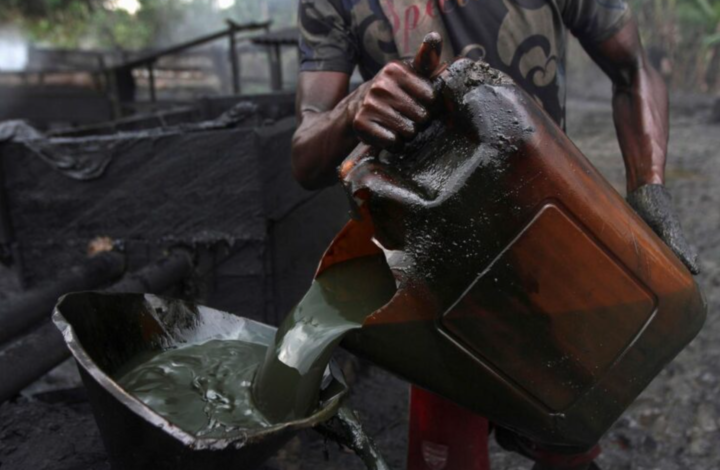The Nigerian Extractives Industries Transparency Initiative (NEITI) has revealed alarming statistics concerning pipeline vandalism and its financial implications for Nigeria. Dr. Ogbonnaya Orji, the Executive Secretary of NEITI, disclosed these findings during a keynote address on pipeline security, oil theft, and their impact on economic growth at the 2023 International Pipeline Technology and Security Conference in Abuja. This issue is of paramount importance, and addressing it is essential for rebuilding trust in the oil industry, restoring investor confidence, and promoting economic growth.
Over the past five years, from 2017 to 2021, Nigeria has witnessed a staggering 7,143 cases of pipeline breakages and deliberate vandalization. These incidents resulted in crude oil theft and product losses equivalent to 208.639 million barrels, with a monetary value of $12.74 million or approximately N4.325 trillion.
During the same period, Nigeria allocated a substantial sum of N471.493 billion for the maintenance and repair of these pipelines, highlighting the significant financial toll these acts of vandalism have on the country’s economy.

Furthermore, NEITI has made available empirical data on oil theft and losses, indicating that Nigeria suffered losses of 619.7 million barrels of crude between 2009 and 2020. These losses amounted to a staggering $46.16 billion or N16.25 trillion over this eleven-year period.
Dr. Orji emphasized that oil theft is a multifaceted issue in Nigeria, with various methods employed by perpetrators. According to NEITI’s findings, these methods include:
1. **Pipeline Clamping:** Perpetrators use clamps to illegally siphon crude oil from pipelines.
2. **Illegal Connections (ICs) on Major Pipelines:** Criminals establish unauthorized connections on major oil pipelines to steal oil.
3. **Exploitation of Abandoned Oil Wellheads:** Abandoned wellheads are exploited as sources of crude oil.
4. **Pipeline Breakages:** Deliberate acts of damaging pipelines lead to oil theft and losses.
5. **Vandalism of Key National Assets:** Criminals target vital national assets to illegally siphon crude oil into waiting vessels at strategic terminals.
The economic consequences of these activities are profound. NEITI’s 2021 Oil and Gas Industry Report revealed that the sector accounted for a significant portion of Nigeria’s total exports and government revenue. Specifically, the oil and gas sector contributed 72.26% of the country’s total exports and foreign exchange earnings, 40.55% of government revenue, and provided 19,171 jobs. Despite these strategic contributions, Nigeria has not fully realized the benefits of its oil and gas resources due to oil theft and losses resulting from pipeline vandalism, pipeline integrity compromise, sabotage, and general insecurity in the region.
Dr. Orji stressed that addressing the issue of oil theft and pipeline vandalism is of paramount importance. Doing so is not only essential for safeguarding the oil industry’s integrity but also for rebuilding trust in the sector, reinstating investor confidence, and supporting economic growth.
The scale of the problem is evident when considering the sheer volume of crude oil lost between 2009 and 2020. The value of these losses surpasses the size of Nigeria’s foreign reserves and is nearly ten times the country’s oil savings in the Excess Crude Account, highlighting the magnitude of the issue and its far-reaching economic implications.
The urgency of the situation cannot be overstated. Oil theft and pipeline vandalism have escalated to the level of a national emergency. These activities pose a significant threat to oil exploration and exploitation, and they undermine the country’s economic stability and security. Addressing this crisis is imperative to protect Nigeria’s vital oil and gas resources and ensure that they can contribute to the nation’s growth and development. It is clear that a comprehensive and coordinated effort is needed to combat this pressing issue and secure the future of Nigeria’s oil and gas sector.
Support InfoStride News' Credible Journalism: Only credible journalism can guarantee a fair, accountable and transparent society, including democracy and government. It involves a lot of efforts and money. We need your support. Click here to Donate
